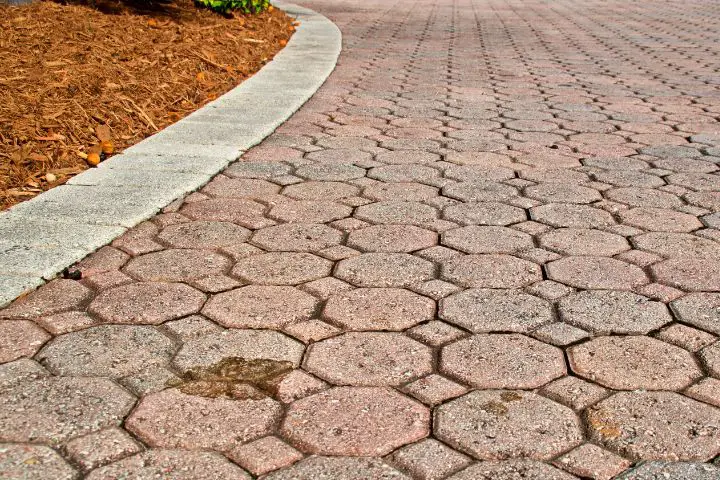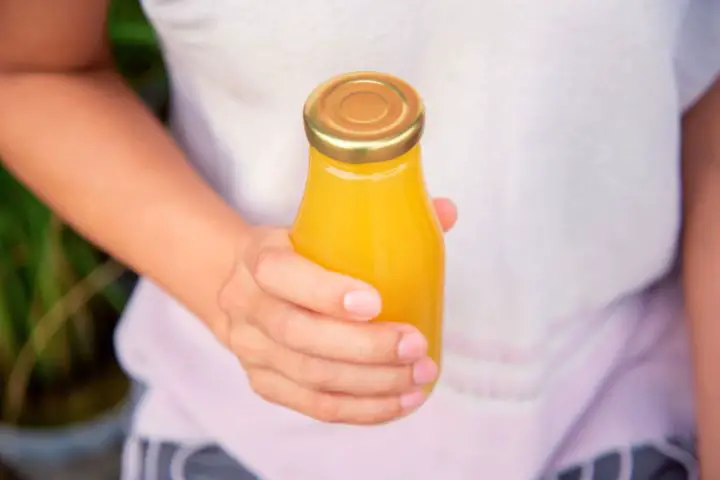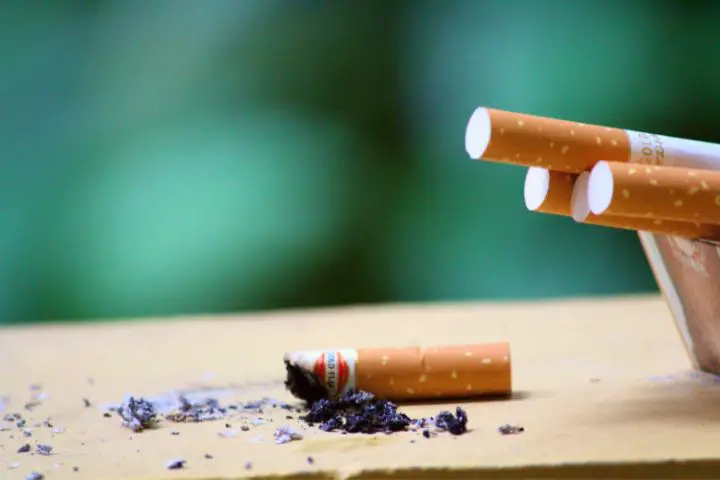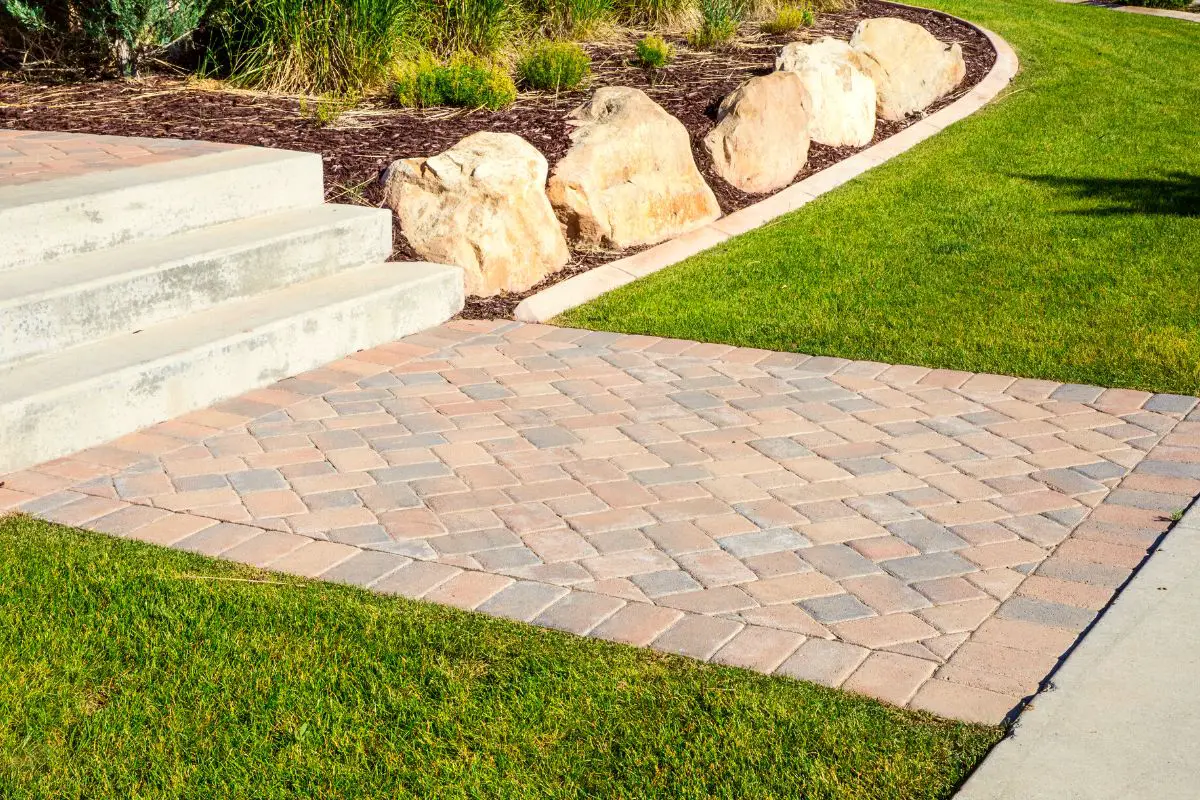How to Remove Stains From Pavers | Different Methods for Any Type of Stain
Pavers are a classy addition to your home, but they also don’t need much more maintenance than concrete or asphalt. Apart from the occasional moss removal, your pavers remain looking tip-top.
However, there is a point where you encounter a stain on your pavers. I have a method for general stains that may end up on your pavers and guidelines to remember when removing the stains.
Related Articles: Sand for Pavers and How To Get Rid of Moss on Pavers
How Do You Remove Stubborn Stains from Pavers- Different Tips for Different Stains
Oil and Grease Stains

- If the stain is fresh, soak up the oil or grease with paper towels. Then put some kitty litter or another absorbent agent to soak up the remaining oil. Rub it gently into the stain, and it will soak up all the oil. Sweep up the kitty litter.
- Grab a bucket of water and detergent with a scrub brush and gently scrub the stain. Baking soda can also work if you don’t want to use detergent.
- Rinse the detergent or baking soda off with your garden hose. You can also use a pressure cleaner to increase your chance of getting out the oil and grease, but be careful not to damage the pavers!
*If nothing is working, spray oven cleaner on the stain, and let it soak for 20 minutes before rinsing. Be careful when rinsing so that it doesn’t end up in your garden – that stuff is very strong. You can also get a degreaser that’s made for stains on pavers.
Rust Stains
- Grab some lemon juice and hope for a sunny day! Lemon juice and sunlight make a mean cleaning agent, especially for rust. Apply the lemon juice to the stain, let it sit for 5 minutes, and then scrub with a nylon-bristle brush.
- Then saturate the stain with white vinegar. Cover with a cloth to keep it damp, and leave it for about 15 minutes. Scrub again.
- Rinse your paver with a lot of water. This will dilute the vinegar, so it does not hurt your plants or grass.
*If you have stubborn rust stains, you can use wood bleach (oxalic acid). This is a powder that you mix in water. If you’re using oxalic acid, make sure to use your rubber gloves and be protected. Follow the exact directions on the product. You can scrub the rust stains right off!
BTW! This method can also be used for fertilizer or moss stains!
Don’t forget to rinse properly, though.
Food and Juice Stains

- Have a small amount of dishwashing liquid or detergent in a bowl. Dip your brush in the detergent and rub it into the stain.
- Let the detergent sit in the stain for 30 to 60 minutes.
- Get a bucket of hot water. Scrub the stain on the paver using your brush to remove the soapy residue. Repeat this process as needed.
- Rinse your paver using the garden hose or the pressure cleaner.
*If the food or juice stains are fresh, grab a paper towel and absorb as much of the stain as possible. Pick up any food scraps and discard them immediately to avoid ants.
Paint Stains (Fresh and Dried Paint)
- Blot the excess paint with a cloth. Paper towels won’t work here!
- If the paint is oil-based, you can use thinners, rubbing alcohol, or acetone. Saturate the area and let it sit for a while, then rinse. Repeat if needed.
- If the paint is water-based, then you can simply use warm water and scrub the remaining paint.
*For dried paint:
You can use paint remover to soften the dried paint and scrub it off. Alternatively, you can use the pressure cleaner to blast it off your pavers.
Leaf, Wood, and Tobacco Stains
- Mix half a cup of bleach with 2 and a half cups of warm water. Mix it well.
- Put on your rubber gloves, and dip a brush into the mixture. Rub it into the stains and leave to work for about 15 minutes.
- Scrub the stain, then rinse the bleach from the pavers. Repeat as needed.
*Make sure all the bleach mixture is rinsed out, so it doesn’t get into your plants. Diluted bleach may not affect your plants that much, however, it’s best to be safe than sorry!

Tire/Rubber Skid Marks
- Pour some detergent on the marks. Let it sit for a while before scrubbing with a stiff brush.
- Continue until the marks come off, then rinse with the hose.
*There are rubber and tar removers that you can purchase for your pavers. If you have those, make sure to follow direct instructions.
Bubblegum (Pop!)
- Remove the gum off your pavers using a putty knife. Be careful!
- If it’s really in your paver, then use a dipped cloth in alcohol. Place the saturated cloth on the gum and leave it for a couple of minutes.
- Remove the cloth and scrub with a stiff brush. Rinse with water.
*If you see gum on the pavers, you should remove it immediately to avoid attracting ants and it sticking to someone’s shoe! The above method can also work for chalking.
And that should cover any type of stain you may encounter on your pavers! Certain methods can be used for other things, such as baking soda or vinegar can be used for various stains, so you can chop and change where you like!
Things to Remember When Removing Stains from Your Pavers

Here are some general tips and guidelines to keep in mind when you tackle stains on your pavers:
- If you can, contact the company for directions for very stubborn stains. Since they put in your pavers, they know exactly what products to use without ruining it further.
- Identify the type of stain you’re dealing with. This will help you choose the cleaning item to use and prevent future stains or MORE stains!
- Rinse your pavers thoroughly and away from your plants.
- When scrubbing your pavers, try to use a soft brush that won’t cause damage to the pavers. If you use a pressure cleaner, this can take out your paver or polymeric sand from the paver joints. It’s advised to add new sand after your pavers are dry.
- Since you will be using household cleaners, you should first try it on a small part of your pavers to test the result.
- Don’t spray your pressure cleaner too close to the stone, as you may discolor the pavers. This will also blow or wash the sand away from the joints, which can loosen your paver stones.
Frequently Asked Questions
Does vinegar clean pavers?
White vinegar with water is an amazing cleaner that can remove dirt and stains from your pavers. It can also keep your pavers clean. For added effect, use the mixture with a paver cleaner to brighten up the pavers.






